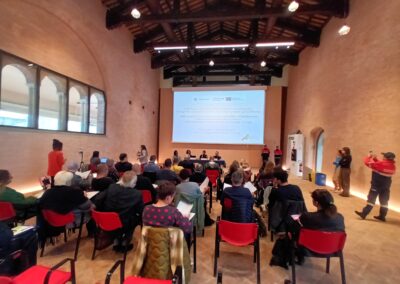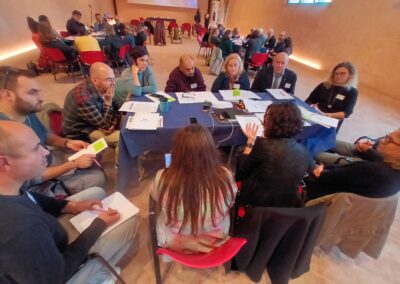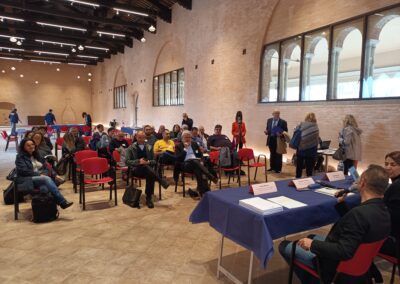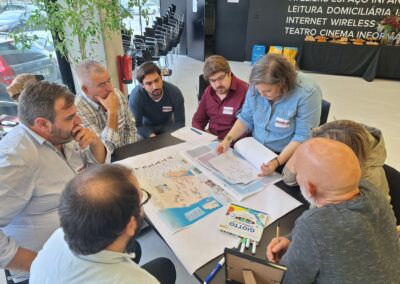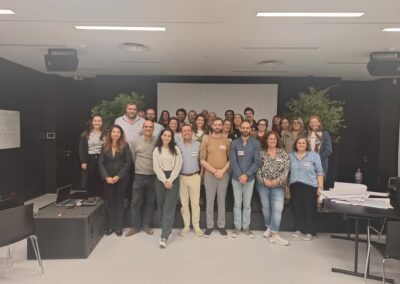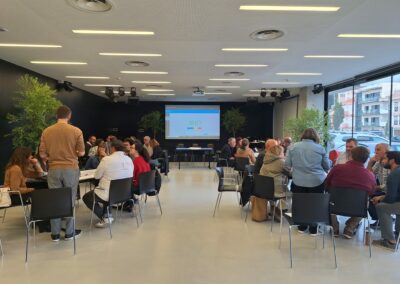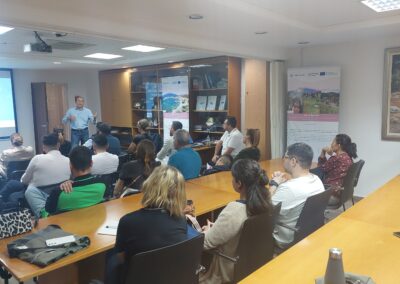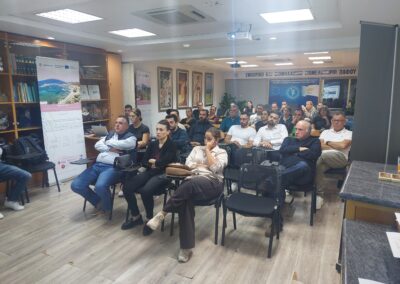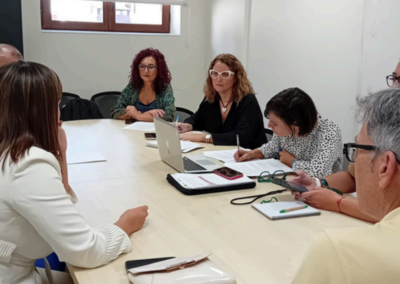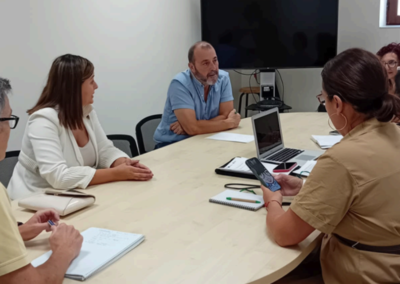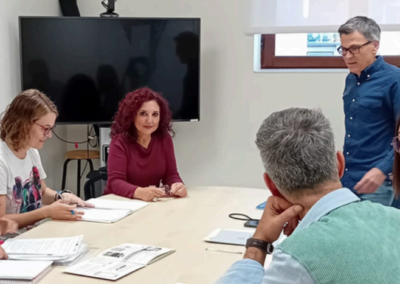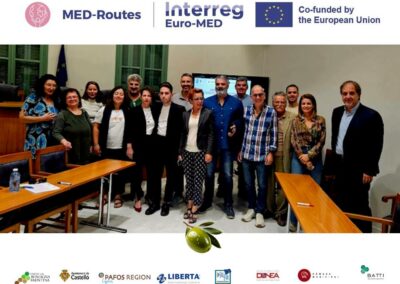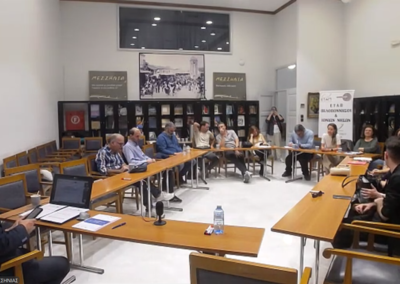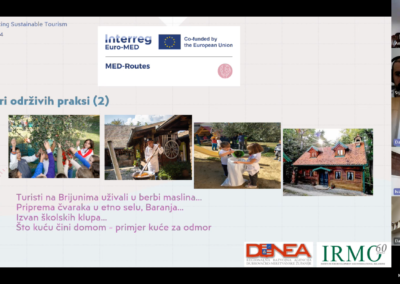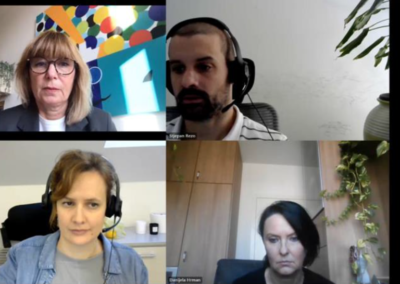From October 10th and up to November 1st 2024, the MED-Routes project organized six participatory labs across different locations. These labs played a crucial role in gathering input and fostering collaboration among stakeholders to develop eco-itineraries that promote sustainable tourism.
Labs Context and Objective: The MED-Routes project aims to establish a sustainable tourism model that enhances cultural and natural heritage through eco-itineraries. The participatory labs engaged stakeholders—local authorities, tourism operators, service providers, and citizens—to design low-impact eco-itineraries tailored to regional needs. This inclusive approach ensures that these eco-itineraries reflect the unique environmental, cultural, and economic characteristics of each location.
Dates and Locations:
- Spain (Castellón): October 16 and 17th.
- Croatia (online): October 22nd.
- Portugal (Vila Franca de Xira): October 29th.
- Italy (Faenza): October 24th.
- Greece (Kalamata): November 1st.
- Cyprus (Paphos): October 31st.
In total, these six labs involved close to 145 participants and spanned over 20 hours, facilitating rich discussions and collaborative ideation.
Participants and Involvement: Each lab brought together stakeholders from various sectors, including service providers, local businesses, and community representatives. This multi-sector participation was essential to ensure that the proposed eco-itineraries addressed the diverse needs of local communities and harnessed their expertise. By involving these target groups, the project tapped into invaluable local knowledge, fostering a sense of ownership and commitment to the long-term success of the initiatives of the MED-Routes Project.
Key Themes and Outcomes by Location:
- Vila Franca de Xira, Portugal: Focused on eco-tourism within the “Rota Histórica das Linhas de Torres,” identifying public transport needs, promoting local food, and fostering partnerships.
- Faenza, Italy: Explored integration of food and wine tourism with eco-friendly practices, emphasizing cycling paths and local crafts.
- Dubrovnik-Neretva Region, Croatia: Highlighted local product promotion, sustainable waste management, and infrastructure needs.
- Kalamata, Greece: Addressed among other, historical preservation, waste reduction, and sustainable water use.
- Spain: Concentrated on sustainable mobility and energy efficiency in tourism.
Significance and Next Steps: The findings from these participatory labs are critical for shaping eco-itineraries that are practical, sustainable, and locally relevant. By incorporating input from all involved groups, the project ensures that these itineraries align with local expectations, leveraging collective insights to overcome challenges and implement effective solutions. This inclusive process not only enriches the project outcomes but also strengthens community ties and enhances support for sustainable tourism practices.
These collaborative efforts underscore the importance of involving diverse stakeholders in creating strategies that cater to local needs while adhering to broader sustainability goals. The outcomes of the labs will guide future actions such as improved waste management, renewable energy use, and community-led initiatives, forming a strong foundation for impactful, eco-friendly tourism across the Mediterranean.
Stay updated as the MED-Routes project progresses in shaping eco-friendly tourism solutions for the Mediterranean!


